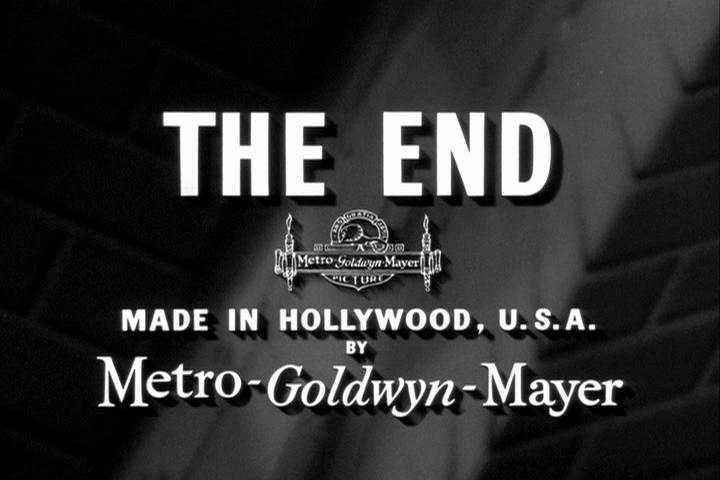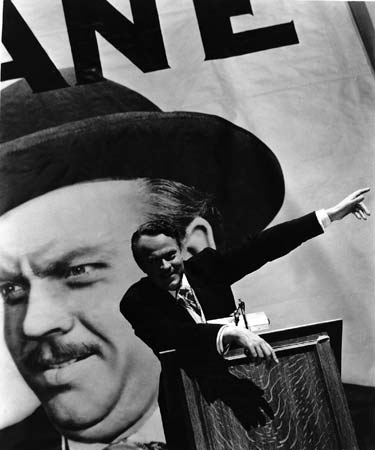| I’m
not so sure that I really liked P.T. Anderson’s There
Will Be Blood. I do know the acting was superlative; or was
it? I do know that the writing was top notch; or was it? The direction,
while good, was not really that good. Or maybe it was really a masterpiece.
I was not convinced, nor was I unconvinced. I did, after the end
of the film, feel assaulted, but is that my problem, or P.T. Anderson’s?
One thing is for sure, though—the film was damn interesting.
Daniel
Day-Lewis gave us a compelling character, to be sure, a larger than
life portrait one might say; or was it more a caricature of the
late John Huston? The oilman Daniel Plainview most certainly was
not necessarily a human being, and of course that may have been
the intent. Or maybe not. P.T. Anderson is not known for
moralizing, and it seems to me the titanic conflict between the
preacher Eli Sunday  (played
by Paul Dana) and Daniel Plainview was more or less a revelation
of some conflict within the psyche of P.T. Anderson himself and
by inference, the American culture in general and the America male
in specific. Ironically, it is the failure of There Will Be
Blood as a drama that says as much about the American landscape
as its supposed story-telling mastery. For mastery, I will define,
as art executed with results intended; mastery is not accidental,
but contrived and well controlled. P.T. Anderson, like Quentin Tarantino,
does not yet show mastery because he still seems to be struggling
to master himself and does not understand the exigencies (and certainly
not the value) of understatement. Moreover, both filmmakers feel
like as if they are pawns to some larger agenda and forces over
which they have no control. Neither have very much perspective on
or faith in humanity (not that they need it necessarily); as for
Anderson, he apparently possesses a strong sense of the rage that
must be expressed. Like the archetypal American, Anderson the person
seems ultimately dissatisfied no matter how much material wealth
and fame is heaped upon him, and can only cry out in despair through
his art. Like another canary in the cage, Britney Spears, he is
probably a psychological mess, but unlike Britney manages to channel
any neurosis in such a way as to create films, where with Britney
her life itself has become the performance piece. Britney has so
immersed herself in her own tragedy because the can no longer separate
her art from her reality. She has become her own 24x7 movie. (played
by Paul Dana) and Daniel Plainview was more or less a revelation
of some conflict within the psyche of P.T. Anderson himself and
by inference, the American culture in general and the America male
in specific. Ironically, it is the failure of There Will Be
Blood as a drama that says as much about the American landscape
as its supposed story-telling mastery. For mastery, I will define,
as art executed with results intended; mastery is not accidental,
but contrived and well controlled. P.T. Anderson, like Quentin Tarantino,
does not yet show mastery because he still seems to be struggling
to master himself and does not understand the exigencies (and certainly
not the value) of understatement. Moreover, both filmmakers feel
like as if they are pawns to some larger agenda and forces over
which they have no control. Neither have very much perspective on
or faith in humanity (not that they need it necessarily); as for
Anderson, he apparently possesses a strong sense of the rage that
must be expressed. Like the archetypal American, Anderson the person
seems ultimately dissatisfied no matter how much material wealth
and fame is heaped upon him, and can only cry out in despair through
his art. Like another canary in the cage, Britney Spears, he is
probably a psychological mess, but unlike Britney manages to channel
any neurosis in such a way as to create films, where with Britney
her life itself has become the performance piece. Britney has so
immersed herself in her own tragedy because the can no longer separate
her art from her reality. She has become her own 24x7 movie.
Drama
in its most basic form involves conflict. We all took the course
in college (or at least I hope so): man vs. nature, man vs. man,
man vs. himself, etc. However, the ultimate goal of drama, according
to the Greeks, is catharsis. Literally, a cleansing.
One question that continually haunts me is whether or not
we’ve lost the meaning of drama because of a slow devolution
of the what the essence of drama means that is happening in lock
step with a more general dehumanization of culture that in turn
flows in conjunction with the overall corporatization of everything.
In a powerful, strange and circuitous way, There Will
Be Blood reflects this. I believe that Daniel Plainview as
much a comment on what P.T. Anderson feels he has become in order
to be successful that by accident spills out into a wider comment
on human nature. The result is not so much cathartic as terrorizing,
toxic, manipulative and apocalyptic. But it could easily be argued
that as a cultural Shaman that Anderson is providing us what we
need: a sense of apocalypse that fuels some kind of introspection
on the part of the viewer.
But
I really don’t feel any compassion in Anderson’s agenda,
nor should I; the bottom line is that Plainview’s character
is an emblem of how we are culturally redefining the human psyche
(at least on screen) and the conflicts the arena of human interaction
in order to meet the requirements of modern society, with Anderson
becoming an apologist for the cruelty of the market economy, and
by inference, nature itself. If human behavior is repeatable, definable,
predictable, and manipulatable—largely by fear—well
then we have something that a market economy can deal with. To the
extent that human beings are unpredictable, individual, chaotic,
and existing outside of any common platform of understanding and
don’t respond well to negative stimuli, then they don’t
make such good consumers and are of less use to a profiteering agenda.
To the extent that corporatization feeds on and influences human
nature, it will tend to want people to be shallow, easy manipulated,
predictable, and faddish. To the extent that people become that,
we have sunk to the level of corporate tyranny. There Will Be
Blood is a textbook as to how that can occur. But that does
not necessarily make it a good drama.
As
an altruist, I promote the idea that democracy (to the extent that
we still have it), compassion and humanism can and should be an
underlying cultural framework for stories. Such a storytelling methodology
hinges on an underlying lack of cynicism and acceptance of the place
of the storyteller in society. There is a term for a drama or a
dramatic conflict that involves clichés, stereotypes, one-dimensional
characters couched in cultural cynicism and so on: it’s called
melodrama. I’d argue that a lot of what used to be
labeled melodrama is now called drama; we have in fact to a large
extent lost touch with what good drama is because we have lost any
belief that our culture can fuel it, revealed in the  increasingly
problematic role of the screenwriter in Hollywood (or the dramatic
writer in general) and the growth of Reality Everything. Good drama,
on display so well with the dramatic master William Shakespeare,
hinges on the fact that human beings are ambiguous and not definable
by strictly good and evil; and that ultimately all people are of
some value spiritually and/or humanistically. Good and evil, if
they exist, work themselves out through shadings of anger, hatred,
lust or conversely, compassion, love, sacrifice, equanimity and
so on; in other words, the vices and virtues as expressed and in
conflict within every individual to one degree or another. In my
mind, Daniel Plainview is too narrow a sketch—too much of
a line drawing and not enough of a fully shaded rendering. He is
therefore not quite a character that rises to the level of the word
drama. Nor does his journey provide a catharsis. Rather,
his character simply outlasts and exhausts his competition. Plainview
is, in a sense, the uber apprentice, Donald Trump on steroids.
As such, Plainview has more affinity to a superhero cartoon than
a human being; he is, in fact, sort of a super anti-Hero. increasingly
problematic role of the screenwriter in Hollywood (or the dramatic
writer in general) and the growth of Reality Everything. Good drama,
on display so well with the dramatic master William Shakespeare,
hinges on the fact that human beings are ambiguous and not definable
by strictly good and evil; and that ultimately all people are of
some value spiritually and/or humanistically. Good and evil, if
they exist, work themselves out through shadings of anger, hatred,
lust or conversely, compassion, love, sacrifice, equanimity and
so on; in other words, the vices and virtues as expressed and in
conflict within every individual to one degree or another. In my
mind, Daniel Plainview is too narrow a sketch—too much of
a line drawing and not enough of a fully shaded rendering. He is
therefore not quite a character that rises to the level of the word
drama. Nor does his journey provide a catharsis. Rather,
his character simply outlasts and exhausts his competition. Plainview
is, in a sense, the uber apprentice, Donald Trump on steroids.
As such, Plainview has more affinity to a superhero cartoon than
a human being; he is, in fact, sort of a super anti-Hero.
Today,
many films that make it to the screen reflect the personalities
of the producers who make them, albeit indirectly. They generally
reflect cynicism and a lack of trust in storytelling as necessary
aspect of civilization. Because we have lost faith in our
culture, our storytellers are suspect; we ridicule and interrupt
the quiet we need surrounding the tribal fire that allows the story
shaman to weave his magic. In an attempt to replace this lost magic,
producers introduce violence as a means of subjugating an audience,
rather than inviting them into what is an essentially spiritual
effort.
After any significant exposure to the film industry one
becomes aware of the fact that it is largely a producer's game.
In what becomes an evolutionary process, writers and directors tend
to give producers what they want: something that will make money.
And from a producers standpoint, it is better to have a
smaller, consistent audience that a larger, inconsistent one. This
is why they tend to like genres and sequels. Producers also tend
to like stories of revenge; having spent a little time commingling
with producer types and competitive males in the film industry,
revenge, particularly in the United  States,
is a very real and very visceral motivator for many, because many
are constantly being pummeled emotionally and psychologically (largely
by rejection and/or by being ignored) on a variety of levels: by
critics, by audiences, by agents, by stars, by conglomerate executives,
by stockholders, and probably even by their wives and kids for not
being enough—famous enough, rich enough, huge enough.
In a perpetual game of adolescent-like one-upsmanship, squashing
a weak competitor is fun to some producers (or some businesspeople
in general), a release, like a squashing a bug in a video game.
The result of competitive squashing is a numbing of the media producer/corporate
man who must make these things and the creation of men (and a very
few women) who are machines intent on doing one thing: making money.
Toward this goal they use and discard anything they need to get
the job done. States,
is a very real and very visceral motivator for many, because many
are constantly being pummeled emotionally and psychologically (largely
by rejection and/or by being ignored) on a variety of levels: by
critics, by audiences, by agents, by stars, by conglomerate executives,
by stockholders, and probably even by their wives and kids for not
being enough—famous enough, rich enough, huge enough.
In a perpetual game of adolescent-like one-upsmanship, squashing
a weak competitor is fun to some producers (or some businesspeople
in general), a release, like a squashing a bug in a video game.
The result of competitive squashing is a numbing of the media producer/corporate
man who must make these things and the creation of men (and a very
few women) who are machines intent on doing one thing: making money.
Toward this goal they use and discard anything they need to get
the job done.
There
Will Be Blood displays such a person in full dysfunctional
glory: it is about a man who only cares about money and power, like
the producers who made it and the studios that shop it, or perhaps
even the filmmaker who directed it. While Gandhi may have made it
to the big screen 20 years ago, we glorify the shameless profiteer
in this film and lift him to the heights of the godhead. Moreover,
he beats the hell out of a weak, hypocritical moralist (Reverend
Sunday) who must depend on his (Daniel Plainview’s) largesse
to survive. In fact, he does this to a lot of people, in an extreme
fashion; thus he both shocks the audience and does not ultimately
impact them because he is outside of their mode of conduct. He is
more like a violent clown in a video game than a human being, albeit
with intellectual pretensions. But the final message is simple—existence
precedes essence: the physical defines the spiritual, and not vice
versa. The spiritual, in fact, is a cipher to the material.
Thus the film is a materialist’s revenge on the spiritual
hypocrisy that has controlled much of western civilization. And
we know who is in control when comparing the artists and the producers:
the producers, of course. As advertisers say, “the reptilian
mind always wins.’ Or so we are told to think, and we often
do—thus creating the very reality intended.
Like
another immortal question, that is, whether or not the universe
is an essentially compassionate or adversarial place, There
Will Be Blood asks us a similar question: Does spirit
guide us or does the material? And ultimately are the spiritual
passions any different from the material passions, and does passion,
at its core, simply reflect a will to power  and
dominate, whether or not that passion is spiritual or material in
nature? Is the agenda of Christ, in fact, simply a will
to dominate and “save” imperfect nature? Or is that
the agenda of the Church, and not Christ, and thus the Church eventually
has much more affinity to the corporate than the spiritual? Is the
Church, working in conjunction with the Daniel Plainviews of the
world, therefore the anti-Christ? Is the corporate mind, whether
through business or the Church, the 3rd Revelation of the Bible
as touted by the preacher Eli Sunday? Is the Anti-Christ really
dark minds working against each other in an apparent unity? and
dominate, whether or not that passion is spiritual or material in
nature? Is the agenda of Christ, in fact, simply a will
to dominate and “save” imperfect nature? Or is that
the agenda of the Church, and not Christ, and thus the Church eventually
has much more affinity to the corporate than the spiritual? Is the
Church, working in conjunction with the Daniel Plainviews of the
world, therefore the anti-Christ? Is the corporate mind, whether
through business or the Church, the 3rd Revelation of the Bible
as touted by the preacher Eli Sunday? Is the Anti-Christ really
dark minds working against each other in an apparent unity?
In
his titanic battle with the preacher, Daniel Plainview clearly wins,
or does he? It is not known, really, when Plainview finished off
the preacher with his final blow at the end of the film, what the
statement “I am finished” means. It could simply mean
that he is finished, like he is finished eating; he has now finished
killing, and the servant can clean up accordingly. Or does it mean
that he is finished because he has transgressed the laws, and will
therefore be subject to the rule of law? Or does it mean he is God
of Nature, and he has finished his handiwork by destroying the true
evil of society: the weak? Or does it mean all of the above?
Moreover,
there is something strikingly unusual—whether intended or
not—about the character of Daniel Plainview that separates
him from, let’s say, a Citizen Kane or Hamlet. He had no woman.
He in fact  appeared
to be completely celibate, without interest in sex or women. Again,
I’m not sure if this was intentional, but it was sure interesting.
It was as if elements of Plainview’s personality were developed
dramatically that totally overshadowed others, creating an imbalance
that was similar to let’s say, Edward Albee’s Who’s
Afraid Of Virginia Wolf, where the young couple are so overshadowed
and overpowered by the central characters of George and Martha played
by Richard Burton and Elizabeth Taylor. This imbalance, however,
makes Plainview’s character unrealistic and bordering on caricature
in the worst case or, more generously, insanity on parade—but
again, this apparent dramatic imbalance is something that Albee
what accused of in Virginia Wolf, only here we see it within
the development of a single character. appeared
to be completely celibate, without interest in sex or women. Again,
I’m not sure if this was intentional, but it was sure interesting.
It was as if elements of Plainview’s personality were developed
dramatically that totally overshadowed others, creating an imbalance
that was similar to let’s say, Edward Albee’s Who’s
Afraid Of Virginia Wolf, where the young couple are so overshadowed
and overpowered by the central characters of George and Martha played
by Richard Burton and Elizabeth Taylor. This imbalance, however,
makes Plainview’s character unrealistic and bordering on caricature
in the worst case or, more generously, insanity on parade—but
again, this apparent dramatic imbalance is something that Albee
what accused of in Virginia Wolf, only here we see it within
the development of a single character.
One
could argue that as a result of his imbalance, his Koyanaskatsi,
Plainview has in him an overwhelming rage to dominate that completely
obliterated anything hinting at the weak and feminine, except for
the love of his son, who was, interestingly, not his son at all
but merely a prop used by him to get what he wanted. He did, however,
love his son, that is apparent; or at least he feared his deafness
because it would reflect a weakness on himself, making his failure
and lack of control all too apparent. So when his son becomes deaf,
Plainview apparently loses his own ability to hear in the human
sense, and the son simply becomes an emblem of that fact.
Anderson is essentially showcasing for us, through the character
of Plainview (and whether he really wants to or not) the dysfunctional
male psyche that has created our current world situation—or
at least the one he'd like us to think has. There Will Be Blood
displays a man who almost seems to become a caricature by his
own design, his own choice, by his own will. Thus
Plainview is God as he redefines what it means to be human in his
own inhumane, insensitive and angry image. He is, in a sense, the
Yahweh or Jehovah God of the Old Testament: vengeful
and destructive of the weak of flesh (maybe that’s why Plainview
had no sexual inclinations?) and perhaps, by interference, the New
Testament of the Compassion of Christ. We know that, and
we respond in kind with praise—perhaps because we doubt the
veracity of compassion but do not doubt the realpolitik
of power. The result is, apparently, admiration for the latter and
a tacit acceptance of its (often violent and inhumane) agenda—as
such, this film becomes propaganda for the middle class who the
System wants to maintain within its fold. Or is it propaganda? Perhaps
our individual reaction to Plainview shows us on what side of the
moral question we sit. By walking this razor's edge the film becomes
a work of genius—and this is also what makes it appealing
across many audiences. It is also makes it intimidating, and critics
roll over on their hind legs as a result.
There
Will Be Blood is like an anti- Breaking The Waves
(director Lars Von Trier) – another film that dealt with Oil
and the destruction of the feminine. However, rather than the Goddess
Bess (played by Emily Watson) we have the Jehovah of Plainview,
who is a producer’s dream character, a glorified and artistic
version of the profit motive brought to life in an Academy Award
assured performance by D.D.Lewis.
When
I saw Anderson’s Punch Drunk Love at the Cannes Film
Festival, I was similarly amazed at how dysfunctional Adam Sandler’s
character was: the festering rage that Anderson both used to comment
on the culture and dominate the viewer. Anderson was both in and
outside the character at the same time; something quite unique.
Again, I’m not sure if it’s intentional or not, but
it was quite something to see. Plainview I would call another Anderson
dysfunctional male, and again a marvel to watch, but the result
is a mere assault, whereas in Breaking The Waves the result
was something transcendent. Thus again the film is a perfect foil
to the spiritual man’s view of the world, and the perfect
victory for the materialist and the producers of American films,
and certainly to be heaped with Academy Awards.
Violence
in our culture is commodified and used to dominate audiences in
theaters—to literally “tame” an audience with
violence, to kill their view of the artist as weak; the evolution
is displayed in artists like Martin  McDonough,
a playwright who went from sheer poetic humanism in The Beauty
Queen of Leenane to the sheer, dark violence of The Lieutenant
of Inishmore, where he emulated Quentin Tarantino (on stage
in a bloody melee!) in an apparent ploy to get himself a film career
(note his upcoming film In Bruges) and ensure audiences
would submit. And it worked, because he understood that producers
are looking for such stuff because and that it reflects the mindset
they have to assume to succeed in the film industry. Like The
Apprentice—the definitive propaganda ploy of an amoral
Capitalist mindset—the values of aggression, insensitivity,
domination, fear and control are lifted up as the materialist’s
version of reality and the caricature of Donald Trump becomes what
we want to emulate. Whereas 100 years ago a Martin McDonough
might have become a G.B. Shaw, today he becomes a Tarantino, a Donald
Trump of filmdom. McDonough,
a playwright who went from sheer poetic humanism in The Beauty
Queen of Leenane to the sheer, dark violence of The Lieutenant
of Inishmore, where he emulated Quentin Tarantino (on stage
in a bloody melee!) in an apparent ploy to get himself a film career
(note his upcoming film In Bruges) and ensure audiences
would submit. And it worked, because he understood that producers
are looking for such stuff because and that it reflects the mindset
they have to assume to succeed in the film industry. Like The
Apprentice—the definitive propaganda ploy of an amoral
Capitalist mindset—the values of aggression, insensitivity,
domination, fear and control are lifted up as the materialist’s
version of reality and the caricature of Donald Trump becomes what
we want to emulate. Whereas 100 years ago a Martin McDonough
might have become a G.B. Shaw, today he becomes a Tarantino, a Donald
Trump of filmdom.
Violence
is used by filmmakers to both reveal their characters and pummel
and increasingly numbed populace into feeling something where they
can only be prodded into getting a hint of their remnant humanity
if somebody on screen is walloping somebody else with a venom that
would have made audiences fifty or even thirty years ago heave in
the aisles. Violence today, even the "spiritually-justified"
violence like in the Passion Of The Christ, has become
pornographic and intimidating, a method of control. I'm not saying
violence on screen is never justified—for the reality of life
is that it is often violent; rather I'm suggesting that the hyper-violence
we often see today both drives away audiences and drives out the
diversity of human stories that would make film culture much more
interesting.
But
less hyper-violence doesn't seem to be the trend: the new sci-fi
film Cloverfield is apparently trying to find a new boundary
for today's excessive violence and terror with a cinema-verité
like panache, to see where an audience can be taken and sets, apparently
(I have not seen it) an even higher bar. This film, as well as There
Will Be Blood, No Country For Old Men and Sweeny
Todd seem to have taken the old standard that violence
and agression sells and taken it to new heights.
On
the other hand, whole swaths of audiences are left behind in this
bloodbath. Capitalism, in its ecology of profit taken to the film
industry, tends for producers to create films that reflect their
own psyche that appeal to a limited niche that in turn is well trained,
like rats in a maze (mostly a teenage maze) to return. These audiences
are more likely to read graphic novels and Anime than William Shakespeare,
and Hollywood's business herd is chasing this audience with competitive
overkill.
Moreover,
the style of how much business is done in America (discounting
some belated attempts at 'green-ness') neatly dovetails with the
content of its Hollywood movies, with the implications of psychological
agression and amorality as a pre-requisite for doing business (a
wholly silly notion in my opinion) drawing a clear line between
those that have the stomach for competition and those that don't—the
winners and the losers of our social hierarchies—as if winners
and losers is all there can be, diverting us from what we really
need: collaboration, organization and cooperation to solve
the issues of the day and to make the great art of the future.
I’m
not sure we can break this cycle until we have some sort of defining
cultural upheaval, or if we ever can in the realm of the artistic
(maybe there's some hope in politics!). We do, however,
need more options in movies my opinion, more artistic threads, more
democratic choice, just like maybe we need more political parties.
This is unlikely to happen unless there is a complete transformation
of Western Culture (or Hollywood) or a maybe a Writer’s strike that never
ends until the Iraq war does. Until then, the status quo will continue
marching (at least American) films down this path: ever more violent,
every more melodramatic, ever the same and ever less human as the
skions of capitalism try to mold us all (or in the case of Daniel
Plainview, beat us all) into pliancy. Ultimately, the issue becomes
one of self worth, and the cycle is self sustaining; modern people
today in general do not feel very good about either themselves or
the human race in general; the movies they choose to view give them
little reason to feel otherwise. If people and movies and culture
are to change, people must feel it, and they, are worth the effort.
With Britney Spears as our neurotic and confused icon, our collective
problem is one of self esteem.
Culture (or Hollywood) or a maybe a Writer’s strike that never
ends until the Iraq war does. Until then, the status quo will continue
marching (at least American) films down this path: ever more violent,
every more melodramatic, ever the same and ever less human as the
skions of capitalism try to mold us all (or in the case of Daniel
Plainview, beat us all) into pliancy. Ultimately, the issue becomes
one of self worth, and the cycle is self sustaining; modern people
today in general do not feel very good about either themselves or
the human race in general; the movies they choose to view give them
little reason to feel otherwise. If people and movies and culture
are to change, people must feel it, and they, are worth the effort.
With Britney Spears as our neurotic and confused icon, our collective
problem is one of self esteem.
--
Don Thompson
Don
Thompson is a filmmaker/producer and co-founder of SolPix. You can
find out more about Don by going to the website for his production
company nextpix.
You can also email him at nextpixnyc@aol.com
|






